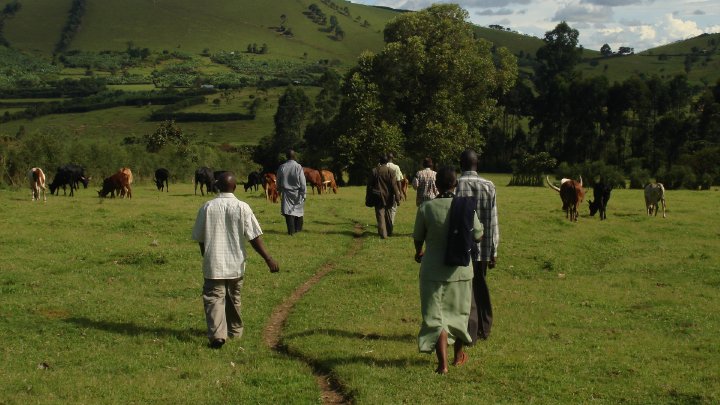Over 80% of Uganda’s population lives in rural areas. Nearly all make their income from subsistence farming. The high quality soil and plentiful rain make the region ideal for agricultural production, yet much of the country remains in poverty and lacks consistent access to food.
In 2000, when the United Nations set the Millennium Development Goals, the organization set out to improve the situation in Uganda. Today, regarding the first goal, To Eradicate Extreme Poverty and Hunger, Uganda has actually regressed. Although the poverty rate has gone down quite a bit, the rate of hunger actually increased from about 60% to nearly 70% in 2006.

One organization in Uganda used Global Greengrants Fund grants to create positive change from the ground up by reducing the occurrence of hunger in local communities. The group is called Nyamirama 2015 Community Projects, and it has begun a series of agricultural projects to generate income and produce food for local communities.
With the first small grant from Global Greengrants Fund, the organization trained the Nyamirama Nyamirama Village on sustainable farming methods. They sought to turn subsistence banana farms into plantations that would reap more income without degrading the environment. Bananas (locally known as Matooke) are a staple crop for the majority of households in western Uganda and Nyamirama in particular. The organization also initiated sustainable poultry farming to use the eggs as a food source in the community.
The second grant from Global Greengrants Fund allowed Nyamirama 2015 Community Projects to start a beekeeping project. The group received training in beekeeping and purchased 50 modern beehives. Later, an additional 20 hives were acquired from local artisans. Besides providing the members with honey, the project generates approximately $500 annually, a good income for the community.
Although they’ve faced challenges along the way, such as lost crops, the organization remains focused on the goal. As local community members themselves, they know it means the difference between families going to bed hungry and economic and food security for future generations.
